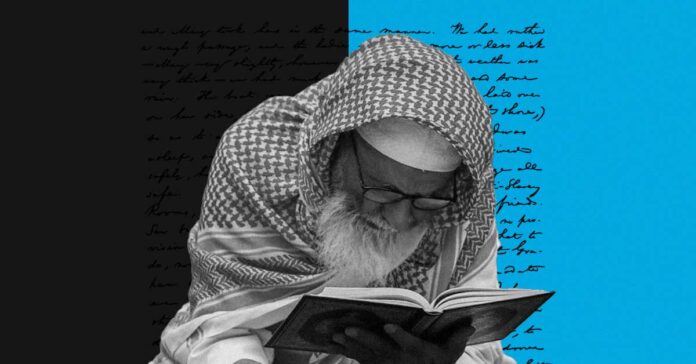Hatim al-Asamm was one of the companions of Shaqiq al-Balkhi (the mercy of God the Exalted be upon them both), and one day he asked him and said, ‘You have kept company with me for thirty years. What have you got out of them?’ He replied, ‘I got eight useful lessons by way of knowledge and they are enough of it for me, for I hope for my deliverance and salvation because of them.’ So Shaqiq said, ‘What are they?’ Hatim al-Asamm replied:
[The first useful lesson is that] I observed mankind, and saw that everyone had an object of love and of infatuation which he loved and with which he was infatuated. Some of what was loved accompanied him up to the sickness of death and some [even] up to the graveside. Then all went back and left him solitary and alone, and not one of them entered his grave with him. So I pondered and I said: the best of what one loves is what will enter one’s grave and be a friend to one in it. And I found [it to be] nothing but good deeds! So I took them as the object of my love, to be a light for me in my grave, to be a friend to me in it and not leave me all alone.
[The second useful lesson is that] I saw mankind being guided by their pleasures and hurrying to what their egos desired, so I meditated on His saying (the Exalted), “But as for him who feared the station of his Lord, and kept the soul back from vain pleasure, the Garden is his abode.”[1] I was certain that the Qur’an is genuine truth, so I hurried to what my ego was opposed to, and I set to work combating it and restraining it from its pleasures, until it was satisfied with obedience to God the Glorified and Exalted, and it gave up.
[The third useful lesson is that] I saw every individual in mankind exerting himself in accumulating the ephemeral things of the world, then clutching at them, laying hold on them, and I meditated on His saying (the Exalted), “What is in your possession dwindles and what is in God’s possession is eternal.”[2] So I sacrificed the gains I got from the world to God the Exalted, and I distributed them among the poor so that they might become a treasure for me with God the Exalted.
[The fourth useful lesson is that] I saw that some of mankind believed their nobility and standing to be in the size of their nations and tribes, so they were conceited because of them. Others had the opinion that it lay in the wealth of their possessions, and the numerousness of sons, so they were proud of them. Some reckoned nobility and standing lay in forcibly acquiring the property of men, in tyrannizing them and spilling their blood. A group held that it consisted in wasting money, spending it lavishly, and squandering it. I meditated on His saying (the Exalted), “The noblest of you in the view of God is the most God-conscious of you.”[3] So I chose God-consciousness, believing the Qur’an to be accurate truth, and their opinion and evaluation utterly empty falsehood.
[The fifth useful lesson is that] I saw some people blaming others and some slandering others, and I found that that was through envy regarding money, fame and knowledge. So I meditated on His saying (the Exalted), “We distribute their subsistence amongst them in the life of the world,”[4] and I understood that the distribution was from God the Exalted in eternity, so I did not envy anyone and I was content with the distribution of God the Exalted.
[The sixth useful lesson is that] I saw some people acting with hostility towards others due to some motive and cause. So I meditated on His saying (the Exalted), “Verily, Satan is an enemy to you, so take him as an enemy,”[5] and I understood that enmity towards anyone but Satan was not allowed.
[The seventh useful lesson is that] I saw everyone striving in earnest, and working intensely in quest of their food and livelihood to the point that they thereby fell into what was dubious and banned, degrading themselves and lowering their worth. So I meditated on His statement (the Exalted), “No beast is on earth without its provision depending on God,”[6] and I understood that my provision depended on God the Exalted and that He had guaranteed it. So I occupied myself with worshipping Him and severed my hope from other than Him.
[The eighth useful lesson is that] I saw everyone relying on something created some on the dinar and dirham, some on wealth and property, some on their business and trade, and others on some similar created thing. So I meditated on His statement (the Exalted), “And whoso relies upon God—He is his sufficiency. Verily, God brings His command to pass. God has made a portion for everything.”[7] So I relied on God, and He is my sufficiency and the most excellent trustee!’
[Al-Ghazali Letter to a Disciple, p. 28-32]
Notes:
[1] Qur’an 79:40-41
[2] Qur’an 16:96
[3] Qur’an 49:13
[4] Qur’an 43:32
[5] Qur’an 35:6
[6] Qur’an 11:6
[7] Qur’an 65:3









